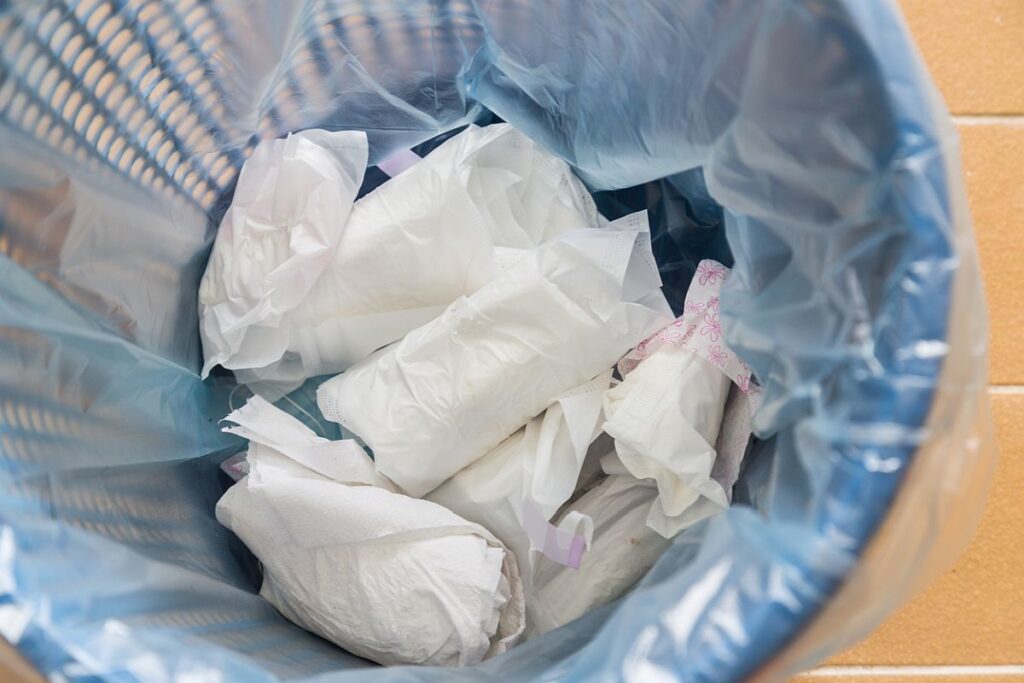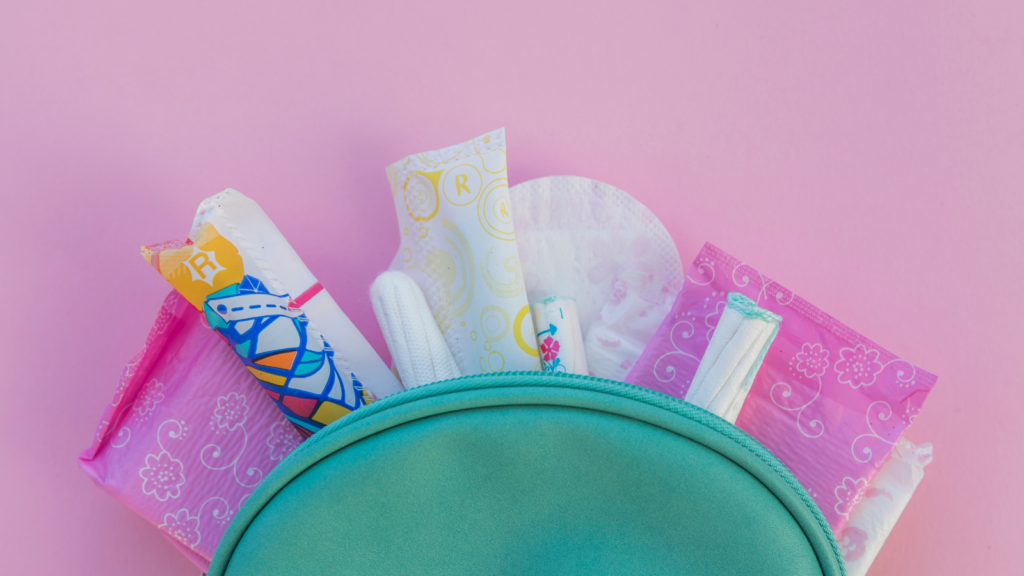Period waste and shame : it’s time to make periods normal again.
Menarche, or the first commencement of menstrual period in the female adolescent, started at the age of 12. With the average menstrual flow as much as 85cc per cycle which lasted 3 to 5 days in each cycle, women and girls use conventional disposable menstrual products as much as 7 – 10 pads per month. Based on the average of 38 years of menstruating, women use more than 11,000 disposable menstrual products within their lifetime, detailed to 22 sanitary products per cycle, 13 cycles per year.
At any given time, 800 million women and girlsare menstruating all over the world. Conventional sanitary products, namely pads and tampons can contain up to 90% plastic causing sewer blockage and leaches toxic substances into the marine life. Annual worth of disposable period sanitary products omits carbon footprint as much as 5.3 kg CO2 equivalent Waste generated takes up as much as 200,000 tonnes per year taking over 500 years to break down. Maybe this is the right time to ask ourselves, is the 500 years of products breakdown worth the average 38 years of disposable sanitary products?
The discourse surrounding period products is not a new thing So, what have we been doing wrong ?
Period Taboo, Shame and other Sociocultural Restrictions
Unfortunately, the access to comprehensive menstrual education is not yet inclusive nor equally accessible for everyone. The practices of menstrual hygiene are widely affected, if not restricted, by norms, family influence, and socioeconomic status. Misconceptions and ostracization of women and girls who are menstruating affect how one would go on about their day while menstruating. Menstrual blood is seen as taboo in some many countries, even being seen carrying sanitary products without an effort to conceal it is considered obscene. It is expected from women as their moral imperatives to keep menstrual cycle in secret. The secrecy revolving menstruation is not only expected as a part of modesty, some cultures believe that period blood can be used for witchcraft.
The reckoned effects are infertility or even death. It is important to note then that education plays critical role when positive period conversations are expected from the younger generations. These socio cultural restrictions affect how menstrual sanitary products are being disposed.
Most women prefer to dispose of their used sanitary products into solid domestic waste, bury it, or discard it into pit latrines. The lack of disposal sites also leads to unhygienic methods, such as wearing menstrual products way over its healthy due hours, causing major health impacts; toxic shock syndrome even reproductive tract infection.
Modern society requires the need for everything instant, that also means everything disposable. Unnecessary toxic substances such as bleach, chlorine, and dioxin can still be found in pads and tampons. Growing up, women and girls are always told that periods are shameful and something they need to keep in secrecy. We need to start more discourse on positive and healthy conversation when it comes to period. According to UNICEF’s Guidance on Menstrual Health and Hygiene, effective menstrual hygiene management means that “menstrual materials can be changed in privacy as often as necessary for the duration of the menstruation period. It also means that menstruators have access to facilities to dispose of used menstrual management materials.”

Starting positive period conversation can deter the taboo revolving menstruation. Girls can be educated about what choices they have without feeling there’s something wrong with them and access more environmentally friendly sanitary products. Introducing girls and women to reusable products and making it accessible and affordable for everyone. With the rampant sociocultural restrictions women and girls have been facing their whole life, making them feel less guilty about killing the planet from the astounding waste created from the period products is the least we can do.



